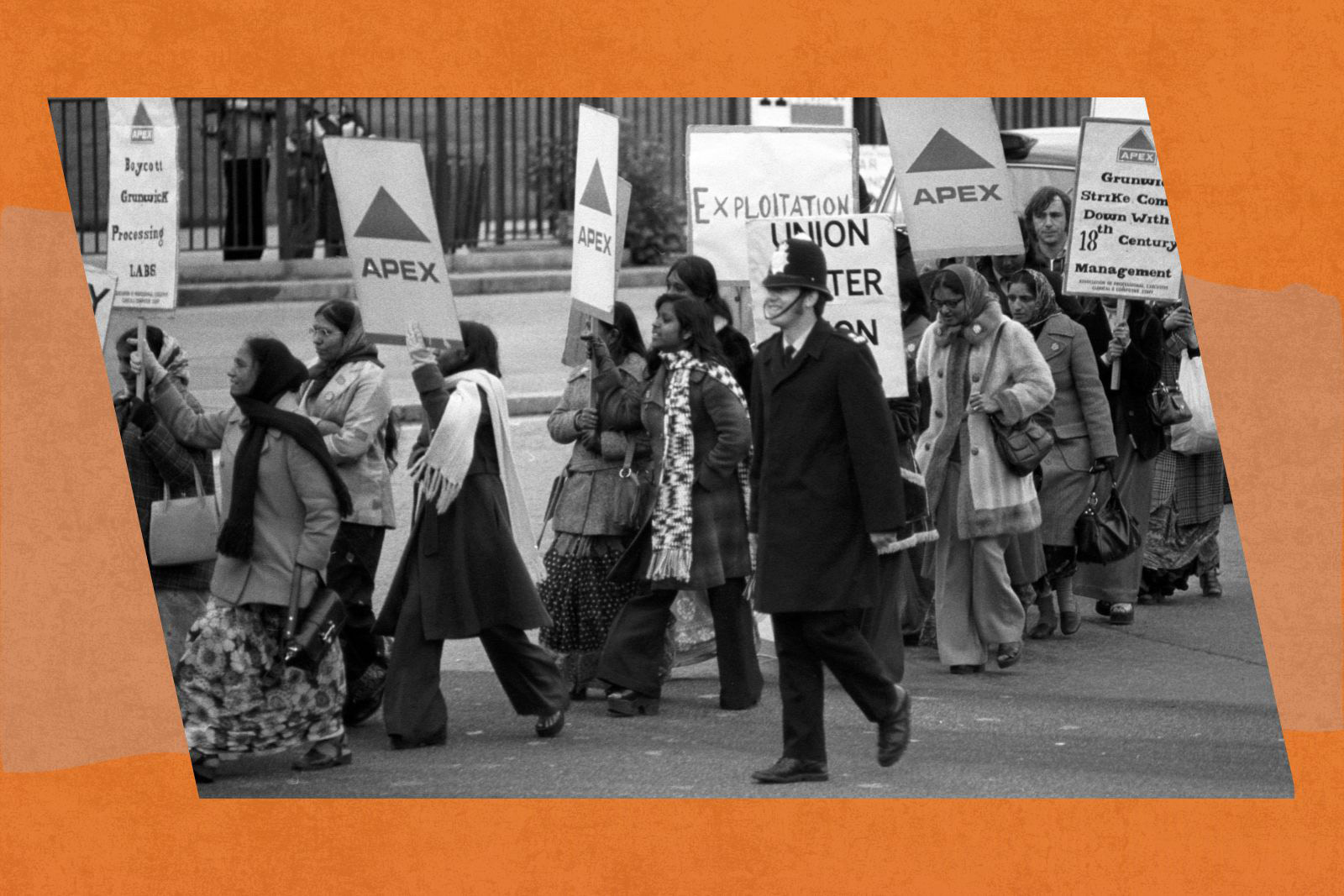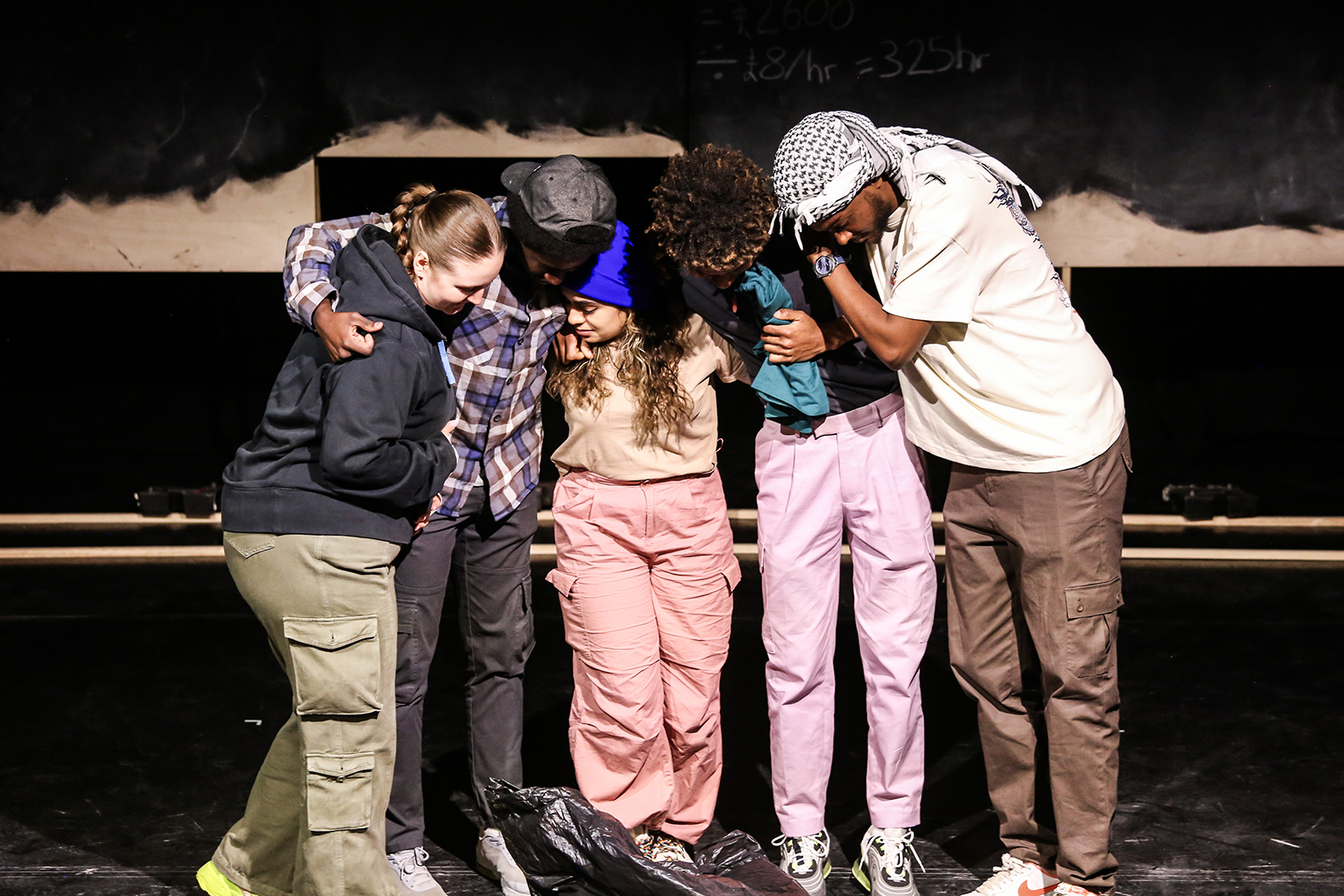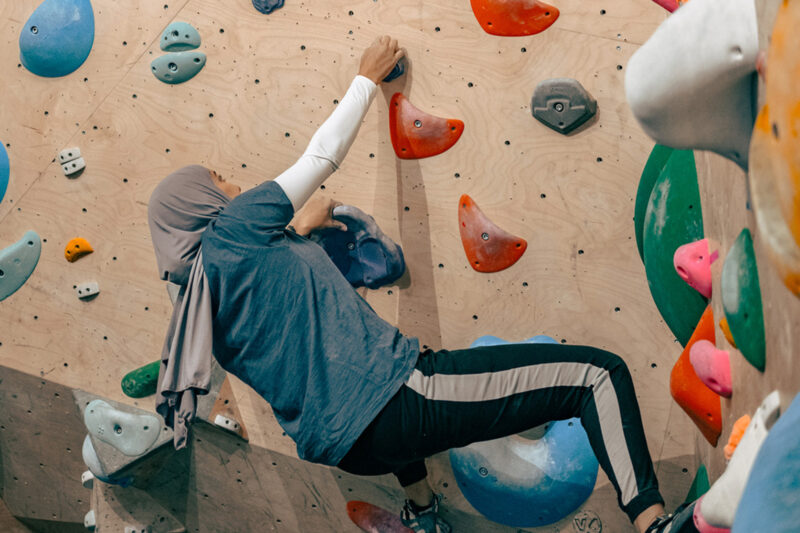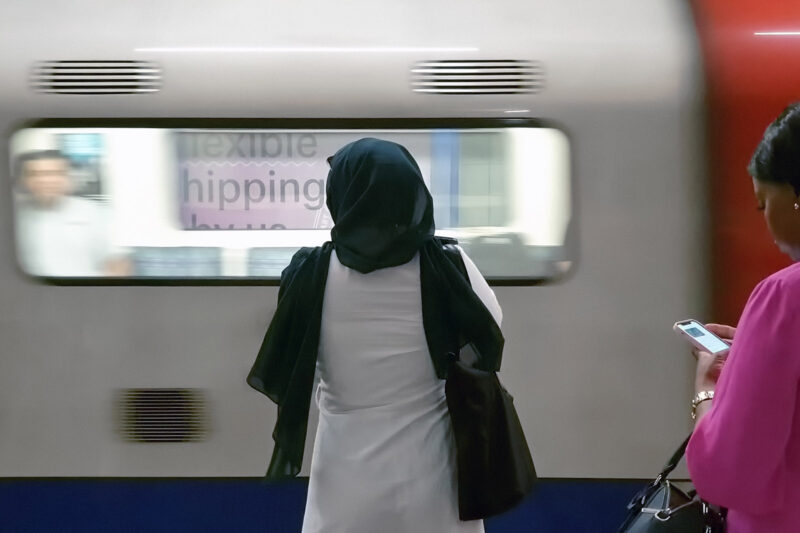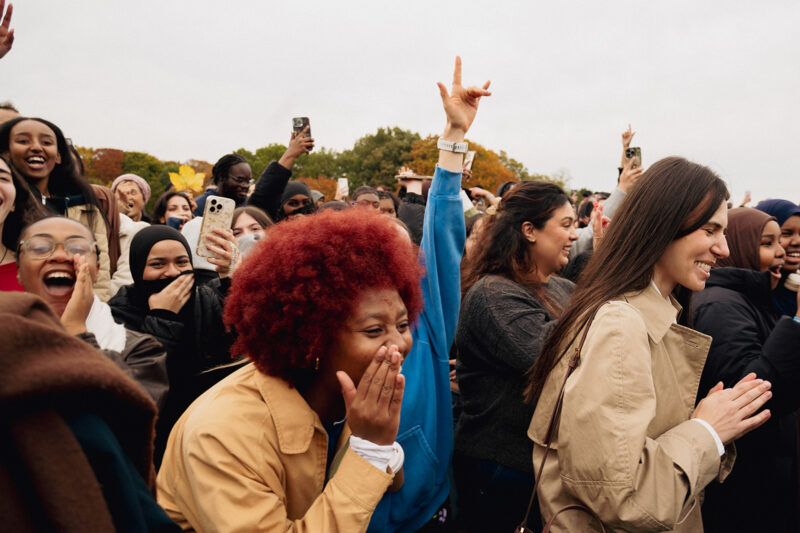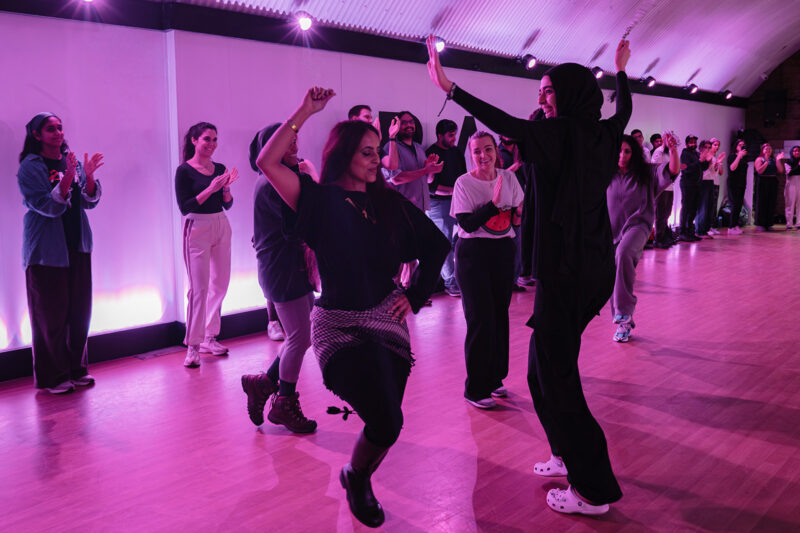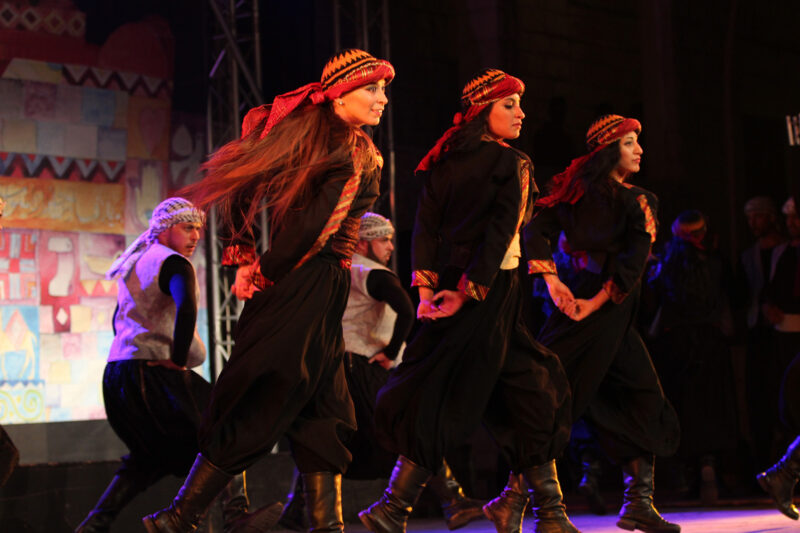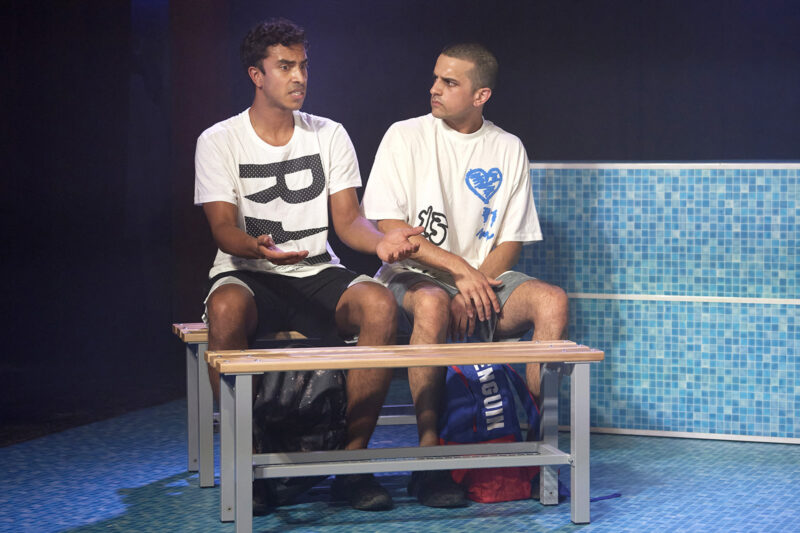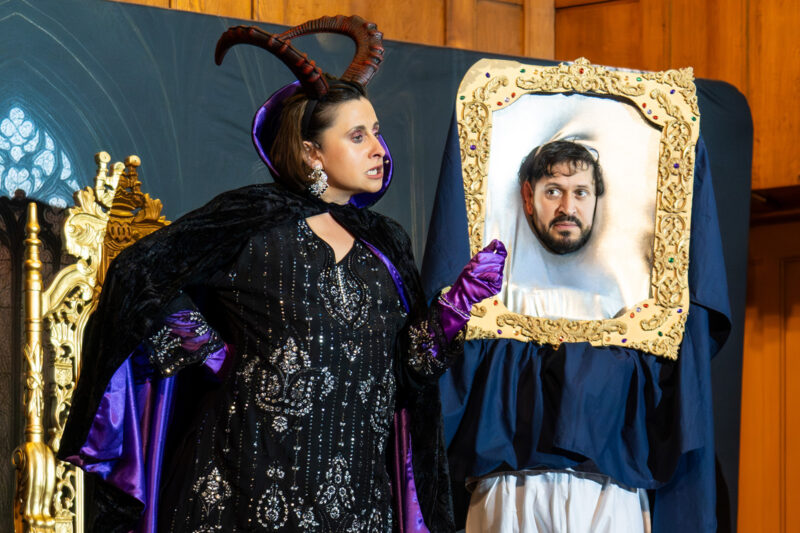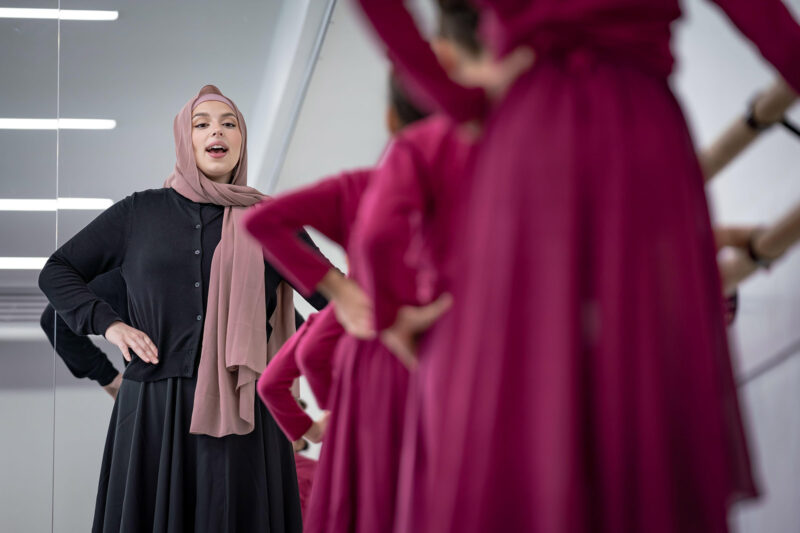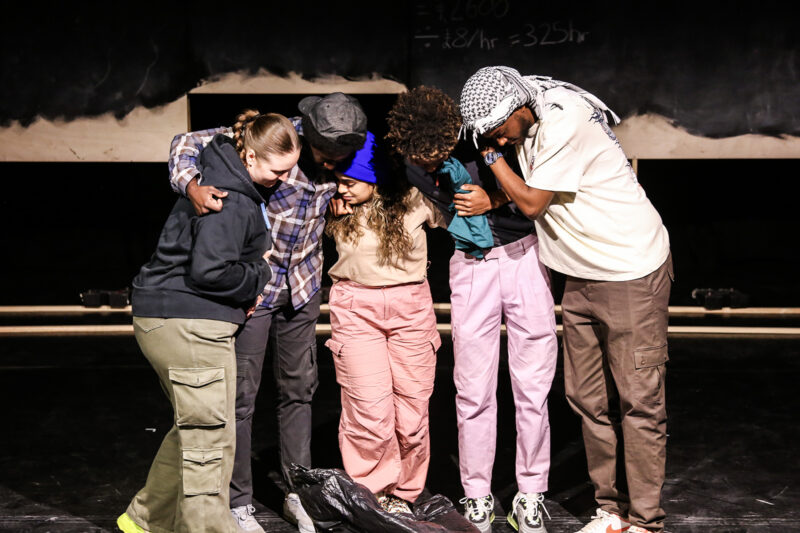We Are the Lions, Mr Manager is bringing the Grunwick strikes to the stage
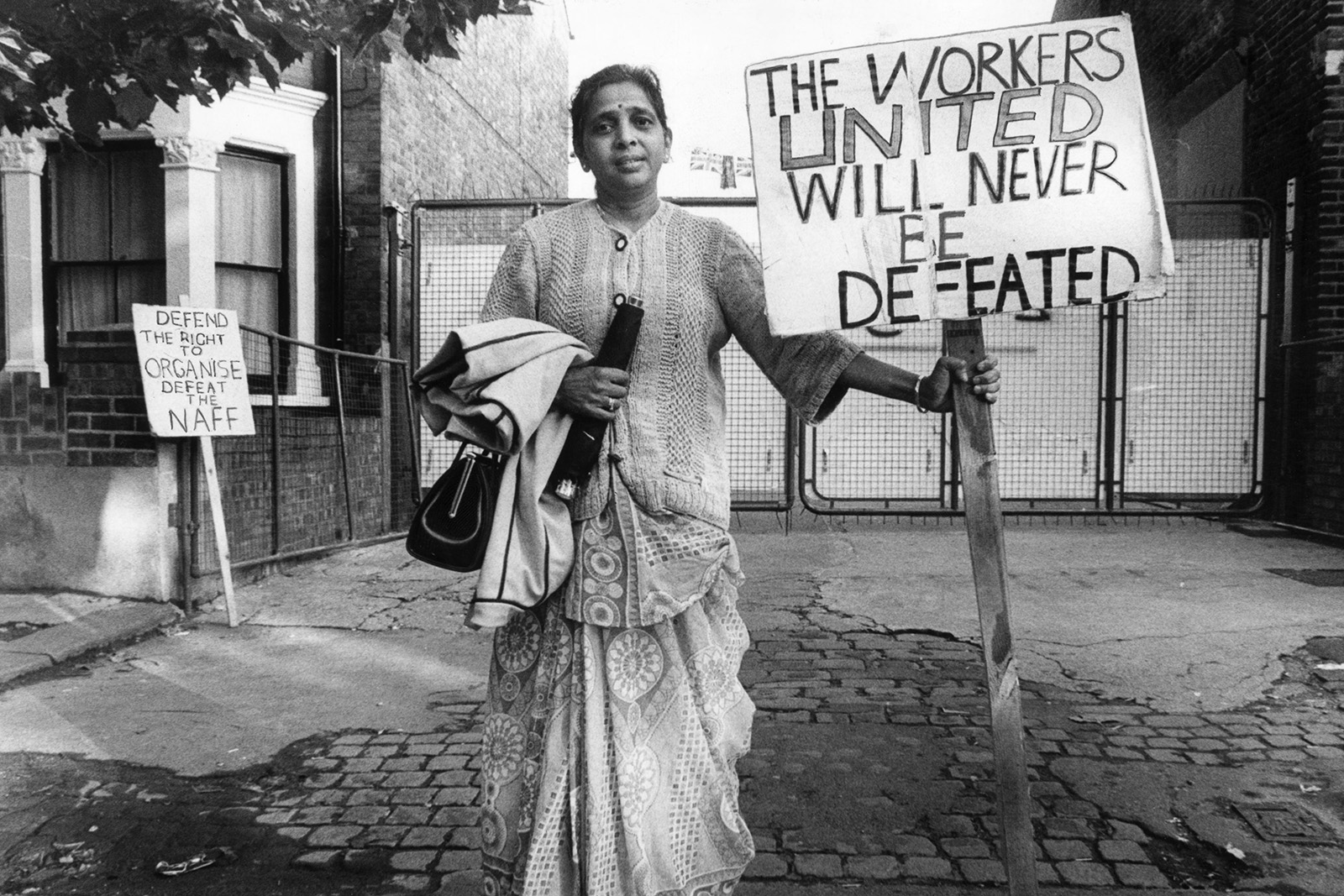
Almost 50 years on, this theatre production remembers the women who stood up for their rights and changed the labour movement
An Indian woman clad in a green sari and an overcoat stands on stage. Jayaben Desai has just finished her shift in the mail-order department at the Grunwick film-processing factory in Willesden, north-west London.
As she prepares to leave, her supervisor tells her that overtime is compulsory, and that she must stay. After months of such mistreatment, Desai is furious and decides she’s had enough. When the man describes her and other workers as “chattering monkeys”, she walks out, but not before delivering a cutting response.
“What you are running here is not a factory, it is a zoo,” she says. “There are many types of animals in a zoo. Some are monkeys who dance to your tune, others are lions who can bite your head off. We are those lions, mister manager.”
So begins We Are the Lions, Mr Manager, a play about a woman whose defiance sparked one of the UK’s most significant industrial disputes, led by South Asian Hindu and Muslim women. Brought to the stage by Townsend Theatre Productions, co-founded by Louise Townsend and Neil Gore, the production draws on real events that happened almost 50 years ago.
“The Grunwick strike changed attitudes, and represented a really interesting moment in British history,” says Gore, who wrote and stars in the play. “That’s why we wanted to do the show and celebrate 50 years of the strike.”
Townsend, who directs the show, describes the moment she first heard about Desai: “They were talking about her on the radio with the trade union movement and I thought it was an amazing story.”
The two-person play stars Rukmini Sircar as Desai, and Gore, who takes on various characters, from Labour MP Jack Dromey to Grunwick factory owner George Ward. The play incorporates film and music and features a pop-up exhibition that informs guests about the history of Grunwick. Featured throughout is Hold the Line Again, a song written by musician Jack Warshaw, which tells the story of Desai and the other women who joined her on the picket line.
The Grunwick strike began on August 23, 1976. It was a time of demographic change and economic stagnation in the UK. Prime Minister James Callaghan was leading the Labour government through a financial crisis and the threat of far-right parties such as the National Front.
Grunwick was one of many factories in the borough of Brent, which was home to 25% of London’s manufacturing industry at the time. Grunwick advertised itself through leaflets as non-discriminatory to minority ethnic workers and attracted a large immigrant workforce. But that environment also provided fertile ground for exploitation and poor working conditions.
“We had to ask to go to the toilet,” Desai recalled in a 2007 interview. “If somebody was late by five minutes, they were sacked. People were desperate for money. Everybody was working hard in fear.”
Desai, who died aged 77 in 2010, was one of 137 workers who walked out that day and a leading figure in the dispute. The strikers joined the Association of Professional, Executive, Clerical and Computer Staff (Apex) union, demanding recognition, reinstatement of sacked colleagues, and better pay.
The strike lasted nearly two years and, despite attacks from the rightwing press, support poured in from across the UK. At its peak, it drew crowds of up to 20,000 supporters, from Cricklewood post office workers to Yorkshire miners who marched with the South Asian women. Over its course 550 people were arrested, including Desai herself.
The image of sari-clad women confronting police on the picket lines, however, challenged preconceived notions of who the labour movement included and who it should fight for.
“The Grunwick strike was a turning point, forcing a reckoning on racism within the labour movement,” says historian Dr Shirin Hirsch, who has written previously about the significance of Grunwick. “It was a strike of epic proportions, not just in its length but also in its militancy and the involvement of huge numbers of people in solidarity on the picket lines, breaking down some of the generalised racism within the labour movement.”
Gore and Townsend first brought Desai’s story to the stage a decade ago to coincide with the 40th anniversary of the strike. Now, thanks to support from Brent Council, We Are the Lions, Mr Manager is back to celebrate the half-centenary.
“Jayaben was amazing,” says Gore. “She changed people’s attitudes towards Asian women and what leadership looks like.”
We Are the Lions, Mr Manager, is touring the UK until 6 December, with the finale at the United Reformed Church in Rutherglen, Scotland. South Asian dance groups and community choirs will take part in the production, with audience members invited to join the actors on the picket line during performances. For Gore, highlighting that spirit of solidarity has never been more important.
“Grunwick goes beyond an industrial dispute,” says Gore. “It’s about women in the workplace, immigration, and the changing role of trade unionism. With the riots of last summer and rising tensions around immigration, we wanted to revisit the story as a way to say, ‘Look, we’ve been here before.’”
We are the Lions, Mr Manager is touring the UK until 6 December.
 Newsletter
Newsletter


